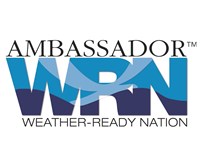What to Do
Frequently Asked Questions
The following page provides answers to some of the most frequently asked questions the UD Office of Emergency Management recieves. If you have any questions, please contact UD Associate Director of Emergency Management at joshk@udel.edu.
Does the University have a Plan to manage a variety of incidents?
Yes. The University has an Emergency Operations Plan (EOP). The University is vulnerable to several natural and human-caused hazards that can affect University property and faculty, staff, students, and visitors that are present on campus. To effectively respond to these natural and human-caused crisis and/or disaster events, the University has adopted this Plan to guide response efforts. The priorities for this plan are to:
- Protect lives
- Stabilize the incident
- Minimize environmental and property damage
- Continue critical services to customers
This plan also strives to meet National Incident Management System-Incident Command System (NIMS ICS) requirements as established by the Federal Emergency Management Agency (FEMA). The use of NIMS and ICS enables this response plan to coordinate effectively with other jurisdictions involved in a response, such as the Newark Police Department, Aetna Hose, Hook and Ladder Volunteer Fire Department, New Castle County and the State of Delaware.
Where can I find the Emergency Operations Plan and other Plans that are important for me to understand in my role as an employee at the University?
The Emergency Operations Plan (EOP) and various other plans can be found on the
Who is responsible for managing an incident on the campus?
Depending upon the nature and severity of the incident an Incident Commander is designated. For incidents involving law enforcement, the Chief of Police is the Incident Commander. The Chief would work closely with the Associate Vice President for Emergency Management and Environmental Health and Safety in assessing the situation, ensuring the safety and security of the campus community and managing the incident from start to finish. The Incident Commander has overall responsibility for managing the incident and takes policy direction from the executive leadership of the University. The Incident Commander is often situationally dependent. For example, if there was a fire on campus, the local fire chief would assume the role of the Incident Commander and University leadership would provide support through the Critical Incident Management Team.
What is the role of the Associate Vice President of Campus and Public Safety?
The Associate Vice President (AVP) of Campus and Public Safety serves as the Emergency Manager for the University during all non-law enforcement emergencies and disasters. The AVP will liaise with the Incident Commander, senior University leadership, those staffing the Emergency Operations Center and federal, state and local officials during the incident. They will also report all operations to the Executive Vice President and Provost who serve on the EOP Policy Group. More specific information is available in the EOP.
What are the National Incident Management System (NIMS) and the Incident Command System (ICS)?
NIMS is a comprehensive, national approach to managing an incident. ICS is a proven, on-scene, all hazard system for responding to an incident. ICS is interdisciplinary and flexible and can be used in any incident regardless of the size or type.
Is there a formal incident response process that the university will follow?
Yes.
- Step 1: Assess the situation.
- Step 2: Determine incident response objectives.
- Step 3: Identify needed resources.
- Step 4: Build an incident action plan and management structure.
- Step 5: Take action.
What is an Emergency Operations Center (EOC) and who would staff the EOC?
During an incident, the EOC serves as a centralized location from which emergency operations are directed and coordinated. The EOC provides interagency and interdepartmental coordination and executive decision making in support of the incident response. The EOC also provides a critical role in support of the on-scene response. Following ICS and NIMS principles, various university representatives may be called upon to staff the EOC so information and resources may be coordinated across disciplines.
I work in Residence Life and Housing and am not familiar with how my department might be called upon in an emergency? Can you provide some examples?
In an emergency (such as threat of a hurricane), Residence Life and Housing may be called upon to provide temporary housing and provide information on special populations so that resources and plans can be developed to address specific needs. These are just examples.
How does Campus and Public Safety identify gaps in preparedness and develop action plans where necessary?
The Emergency Management Director is responsible for updating the EOP and related plans. Additionally, both functional and table-top exercises are conducted to ensure that our plans are meeting the needs of the University and the campus community. An example of recent exercises include a mass casualty table top which simulated a major crash of an Amtrak train on the rail lines near the STAR campus and a simulated Ebola virus outbreak on campus. These exercises provide an opportunity for the federal, state and local resources to test existing plans and develop after-action steps to enhance our preparedness and response to all types of incidents.
How will the University communicate emergency information and updates to students, faculty, staff and visitors during an emergency?
The University of Delaware's primary emergency notification tool is UD Alert. UD Alert allows UD to send emergency messages within minutes. UD Alert is activated only during major emergencies, situations where there is an imminent danger to the safety and welfare of students, faculty and staff, or if a state of emergency is declared. Additional information on UD Alert including how to sign up for the alerts or customize your alert notification modes here. Alternative communication methods may be utilized during a campus emergency. More information on communication methods (and instructions for how to sign up) can be found on this page.
How can I receive additional training on emergency preparedness and related topics?
Federal Emergency Management Agency (FEMA) offers a host of free in-person, online, and independent study courses on this website. The Delaware Emergency Management Agency (DEMA) sponsors all-hazards training courses and exercises that are designed to cover mitigation, preparedness, response and recovery. A mix of courses, seminars, workshops and conferences can be tailored and offered at DEMA or your location. If you are interested in learning about the FEMA or DEMA trainings, please contact our office using this form.






